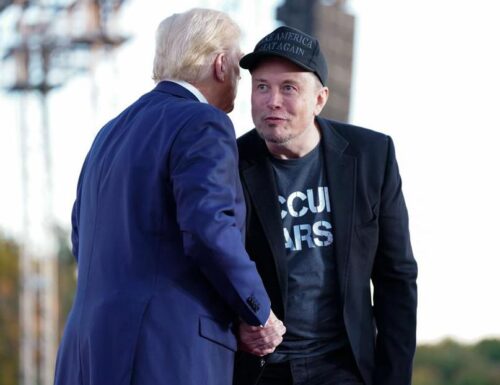The big ideas of Boston mayors, whether their own or adopted from others, have transformed this city in many different ways.
Kevin White looked outside his City Hall window and decided to turn rat-infested warehouses into Faneuil Hall Marketplace. Ray Flynn created public space along the waterfront, and embraced a plan to link development of downtown commercial properties to affordable housing. To bring more life to what is now the bustling Seaport district, Tom Menino promoted construction of a new convention center.
Now comes Mayor Michelle Wu and her big and controversial idea to redevelop White Stadium in Franklin Park in partnership with a women’s professional soccer team. The terms of a lease agreement have finally been disclosed, which is good news. But the total cost of Wu’s plan is still unknown — and its ultimate compatibility with Franklin Park and the surrounding neighborhood is still an open question.
On cost, the agreement signed with the National Women’s Soccer League’s BOS Nation FC does not set any ceiling. Indeed, during a pre-Christmas Zoom news conference, Wu acknowledged that the current $91 million estimate of the city’s share is “probably’’ not the final number. When Jennifer Epstein, the controlling manager of BOS Nation FC, was asked about cost, she said that restoring a “treasured asset’’ would require “significant capital investment’’. She did not put a number on what that might be. (Globe CEO Linda Henry has a small, noncontrolling ownership stake in BOS Nation.)
Writing for CommonWealth Beacon magazine, Andrew Zimbalist, an economics professor and longtime critic of public investment in sports facilities, predicts the final price tag will rise “well above $200 million.’’
On the positive side, the project will generate revenue for the city. Under the lease agreement, the soccer team will pay $400,000 in rent in the first full season when the entire facility is available, to be increased by 3 percent each year afterward. The city would also get 10 percent of in-stadium advertising revenues; 10 percent of revenue from field naming rights; and 3 percent of concessions revenue. However, without knowing the ultimate price tag, the actual cost-to-benefit ratio is still unknown.
Wu’s dream does have its advocates, including some Boston Public Schools coaches and some neighbors from the area who participated in the news conference. But a lawsuit filed by the Emerald Necklace Conservancy, which argues that the plan violates a state law prohibiting private use of public land, is not going away. That plus questions raised about the city’s ability to meet a March 2026 construction completion deadline adds elements of uncertainty to the project.
Beyond cost, the other big question is whether this is the best use of public land. Franklin Park and White Stadium happen to be located in the heart of Boston’s mostly Black and brown communities. Would park land in any other part of Boston be given up so readily to privatization? And by the way, would a stadium in any other part of the city be allowed to fall into a state of such disrepair?
The redevelopment plan does call for major investment in public facilities, new pathways, new lighting, and the reopening of green space and newly planted meadow areas. But why does the city need to build a professional women’s soccer stadium to make that happen? In CommonWealth Beacon, Zimbalist suggests that Boston could follow the example of a recent stadium renovation for high school athletes in Lowell that cost $8 million. If Wu has $91 million to put toward a soccer stadium, she surely has money to do that, plus pay for other upgrades to Franklin Park that would be welcomed by the community.
A plan for a soccer stadium for the New England Revolution on a parcel of land on the Everett waterfront also complicates the White Stadium proposal. As my colleague Shirley Leung has written, it makes sense to combine men and women’s soccer in one venue, and that venue is Everett, where the proposed stadium is bigger. Not everyone is in love with the Everett proposal either. But at least it would transform an industrial site instead of privatizing parkland.
Getting to yes is not easy in Boston. Each past mayor overcame controversy and cynicism to make their dream happen, and not every mayoral dream comes true. Marty Walsh could not overcome opposition to his dream of bringing the 2024 Summer Olympics to Boston, or to bring an IndyCar race to the Seaport. Cost and disruption concerns stopped his Olympics dream and cost and incompatibility with the neighborhood brought down IndyCar.
Although the White Stadium plan is much smaller in scope, Wu is facing a version of the opposition Walsh faced. You could say it comes from cranky old naysayers, who don’t like change.
Or you could say it comes from people who have their own ideas about what change should look like, and at what cost.
Joan Vennochi is a Globe columnist. She can be reached at joan.vennochi@globe.com. Follow her @joan_vennochi.
